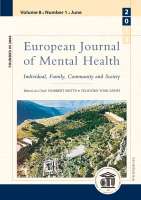The Preventive Possibilities of Midnight Table Tennis
The Preventive Possibilities of Midnight Table Tennis
Author(s): Ágnes SztankovicsSubject(s): Social Sciences
Published by: Semmelweis Egyetem Mentálhigiéné Intézet
Keywords: health promotion; free-time sport; child welfare; stress; prevention
Summary/Abstract: The focus of this study is on the examination of a neglected area of child welfare. Sport is not among the preventive means of Hungarian social work, although we know that regular exercise prevents illness; physical activity diminishes aggression, facilitates the attainment of stress reduction, the development of a healthy personality, and the effectiveness of conflict resolution. Due to less physical activity, however, the youth’s life quality, stress tolerance and level of school achievement decline. All of these problems influence not only the present of individuals, but also the future of a whole society. The questionnaire survey asked young people participating in the Hungarian Midnight Table Tennis Sport Association (MÉSE) which organises nightly ping-pong championships for preventive purposes. MÉSE was founded on the example of the North American Midnight Basketball League providing the unmotivated, straggling children of poor, socially excluded families with socialisation and community and thus preventing them from street loafing and criminal activities. From the North American roots I expected similar results and participants in the Hungarian MÉSE. The research focused on the life qualities and the free-time use of the youth. Family background significantly determines the youth’s attitude towards sport, therefore, the parents’ educational level, socio-economic status and attitudes to physical exercise was also examined. The questionnaire data indicated an unexpected result. The parents of children participating in MÉSE programs are well-qualified, they like sport, nearly a third of them currently exercise regularly, and their socio-economic status can be considered rather good. Regarding the youth’s use of free-time, every fourth participant indicated so-called classic free-time activities, such as excursions or reading. Physical exercises and parties with friends are preferred by half of the respondents. In other words, MÉSE serves – although not unwillingly – an ‘unintended clientele’, while members of the original target group are still at risk.
Journal: European Journal of Mental Health
- Issue Year: 8/2013
- Issue No: 01
- Page Range: 102-111
- Page Count: 9
- Language: English

